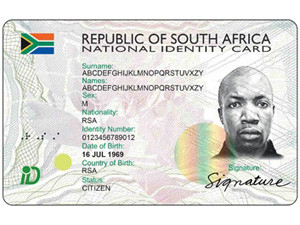
A new government system, eChannel, will be part of the pilot smart ID card project, allowing citizens to apply for their cards online before going into a bank to provide fingerprints.
The Department of Home Affairs (DHA) is ready to go live in May, with the new offering allowing people to submit smart ID applications at banks, with First National Bank (FNB), Standard Bank and the South African Post Office signing up first.
President Jacob Zuma announced during his State of the Nation Address in February that, in an effort to accelerate the rollout of the new smart ID cards, government had partnered with local banks.
The DHA introduced the card, with security features, as part of its modernisation programme in 2013. More than one million cards have already been issued and government aims to issue another 1.6 million cards by the end of the 2014/15 financial year.
eChannel testing
In addition to allowing smart ID applications via banks, the DHA will pilot its eChannel system which will allow citizens to apply for their smart ID cards online. This system, which the department hopes will lead to shorter queues, allows citizens to enter personal details digitally before going into the bank for fingerprint capturing and identification verification.
eChannel is part of the department's strategy to move services from paper to digital.
According to the government news agency Web site, Mpho Moloi, the department's chief director for channel management, said FNB and Standard Bank have signed a memorandum of understanding, and further agreements with Nedbank and Absa are being finalised. Both FNB and Standard Bank have eChannel sites ready to go live, which the department "envisages" happening sometime in May.
Moloi said a risk assessment has been done on the system to protect it from identity theft; however, "it remains an ongoing process. We are employing the best hackers to come attempt to hack the eChannel system to ensure our system is secure."
The pilot will run from May to July. In August, an assessment will be done to see if the system works, said Moloi.
The DHA hopes to replace 38 million green bar-coded ID books within the next eight years.
Share